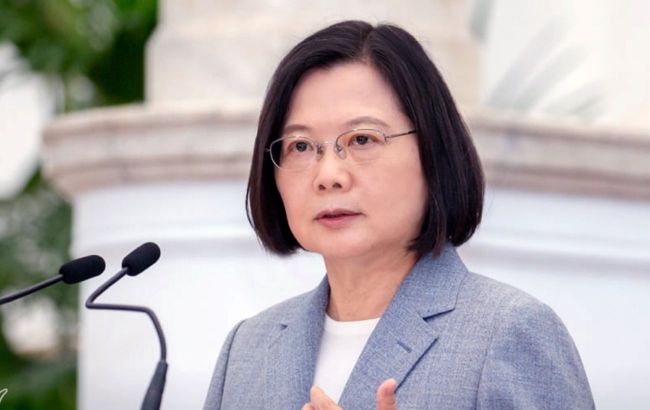Taiwan reacts to Xi Jinping's 'reunification' ambitions
 President of Taiwan Tsai Ing-wen (Photo: facebook.com.tsaiingwe)
President of Taiwan Tsai Ing-wen (Photo: facebook.com.tsaiingwe)
President of Taiwan Tsai Ing-wen stated that Taiwan-China relations should be determined by the will of the people, and the world should be based on "dignity," reports Reuters.
This statement was in response to China's leader, Xi Jinping, who claimed that "reunification" with the island is inevitable.
China is increasing military pressure to assert its claims over Taiwan, a democratic-led island where presidential and parliamentary elections are scheduled for January 13.
Xi Jinping's New Year address sounded more assertive than the previous year, where he only mentioned that people on both sides of the Taiwan Strait are "members of one and the same family".
Responding to Xi Jinping's speech, Tsai emphasized that the most important principle in dealing with China is democracy.
"This is taking the joint will of Taiwan's people to make a decision. After all, we are a democratic country," she said.
China should respect the election results in Taiwan, and both sides are responsible for maintaining peace and stability in the strait, Tsai added.
China has portrayed the elections as a choice between war and peace and rejected multiple proposals from Tsai for negotiations.
Tsai has prioritized the strengthening and modernization of Taiwan's defense, including advancing the submarine program.
"Everyone's home has locks on them, which is not to provoke the neighbors next door but to make yourself safer. This is the same for the doors to the country. Taiwan's people want peace, but we want peace with dignity," she stated.
Pressure on Taiwan
The Taiwanese government has repeatedly warned that China is trying to interfere in the elections using fake news, military or trade pressure. Tsai expressed hope that people would be aware of this.
After China accused Taiwan of raising trade barriers and suspended certain tariff reductions for the island, China threatened further economic measures last week.
Tsai stated that Taiwanese companies should look globally and diversify their activities.
"This is the right path, not a return to reliance on China, especially as there is unpredictable risk in China's unstable market. We have always welcomed healthy and orderly interaction through the strait, but trade and economic exchange cannot become a political tool," she said.
China has expressed particular displeasure with the current Vice President Lai Ching-te, the Democratic Progressive Party's (DPP) presidential candidate, who leads in public opinion polls by various margins, stating that he is also a dangerous separatist.
Both the DPP and the largest opposition party in Taiwan, the Kuomintang, assert that only the island's residents can decide their future.
Tsai cannot run for re-election after two terms in office. She will step down in May when the next president is inaugurated.
Earlier, Taiwan increased sanctions against Russia to halt arms production. Ukraine's situation has garnered widespread sympathy in Taiwan, with many drawing parallels between what is happening in the European country and what could happen if China ever uses force to bring the island, which it considers its own territory, under its control.

